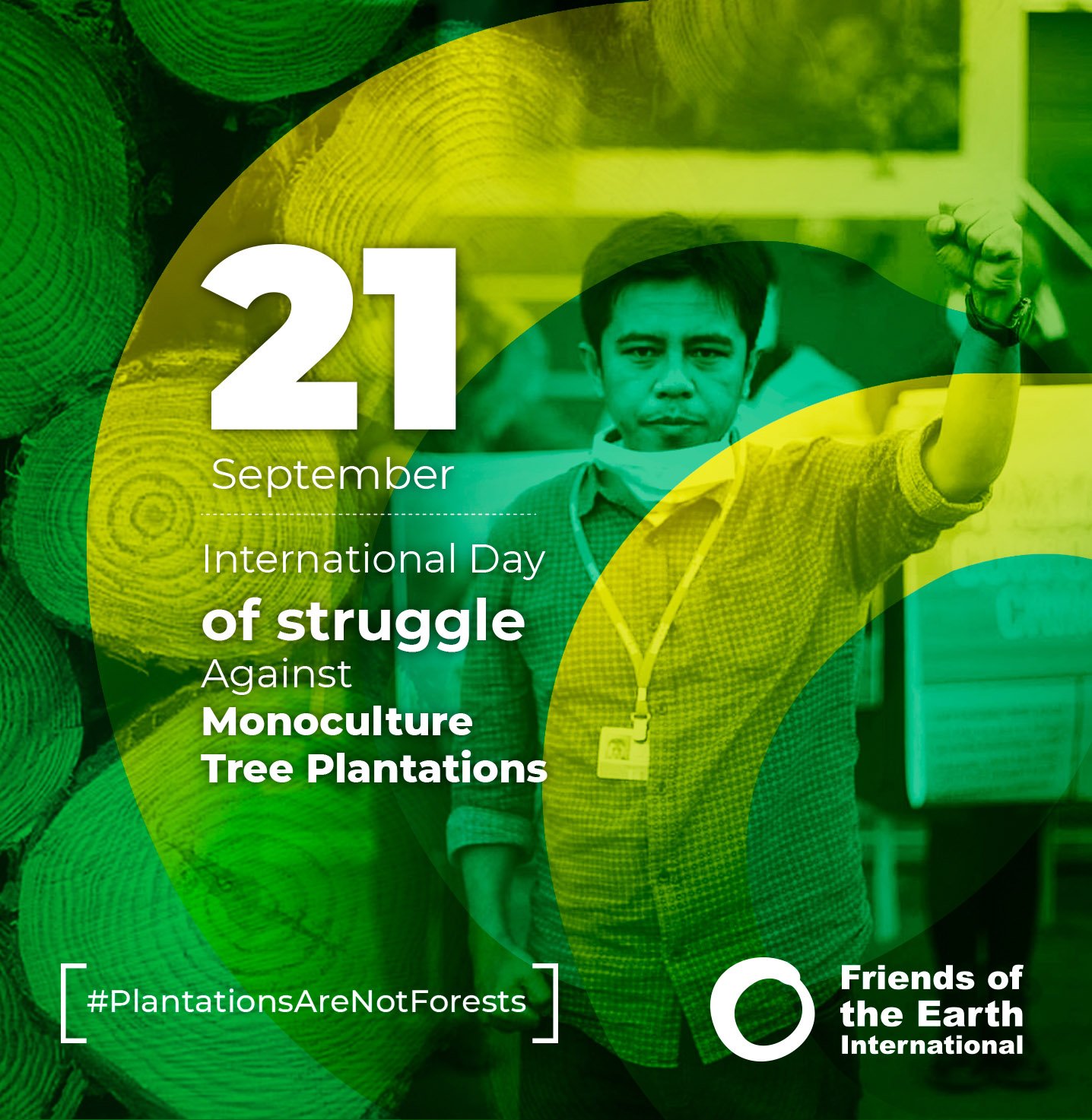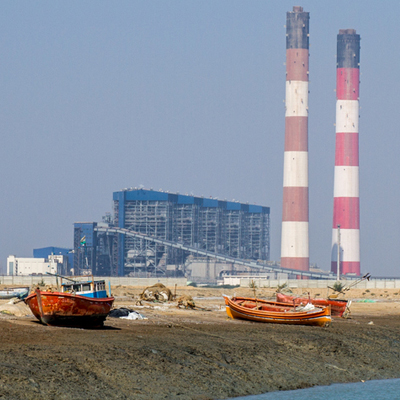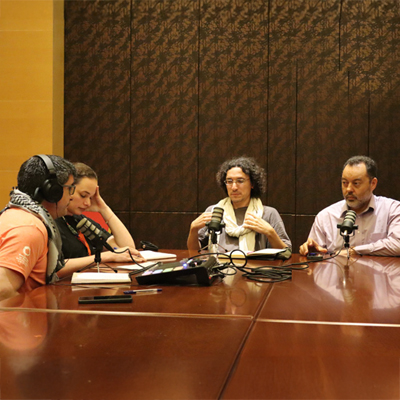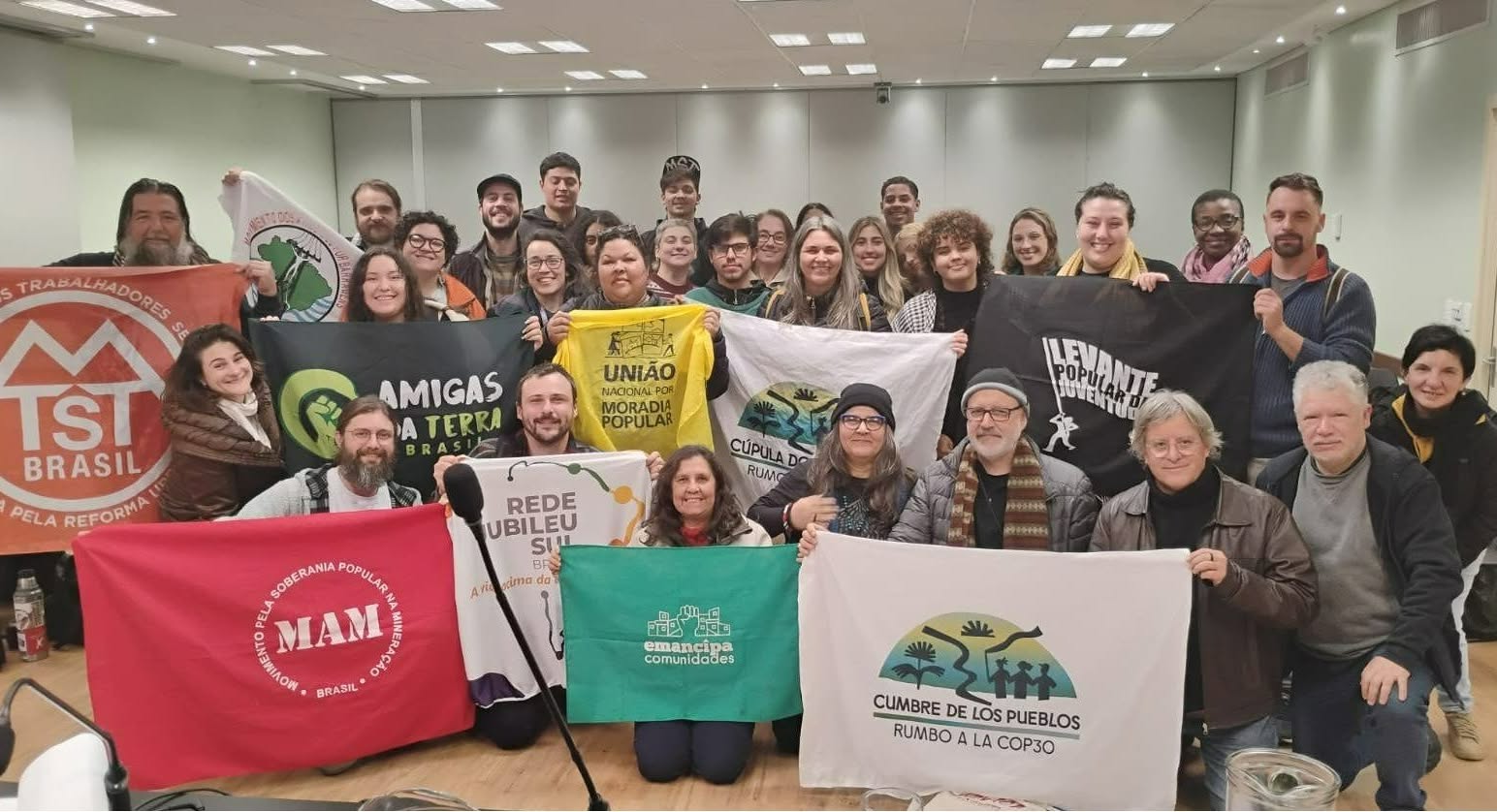“Monoculture plantations are the visible face of the agribusiness model”
Interview with Isaac Rojas, co-coordinator of the Forests and Biodiversity Program at Friends of the Earth International
 Plantations are not forests
Plantations are not forests
21 September marks the International Day of Struggle against Monoculture Tree Plantations. This day was declared in 2004 by rural communities in Brazil, to expose the impacts of industrial tree plantation projects expanding in their territories and to reaffirm their determination to resist plantations and recover their territories from corporations.
Together with Isaac Rojas, we mapped how monoculture plantations are present today in the region and across the world, why organisations are denouncing the massive growth of industrial plantations in the Global South, especially in Africa, and what we can do to stop this expansion.
“Every day, local communities are confronted with the negative impacts of industrial tree plantations, which are the visible face of the monoculture and agribusiness models,” said Isaac Rojas from environmental federation Friends of the Earth International to Real World Radio.
Resistance today
Rojas highlighted the struggles and resistance in Brazil today, in places that are extremely important for the world, with a strong coordination between social movements that fight against these type of issues. He also made reference to a smaller group in Costa Rica and the Movement of People Affected by Climate Change, present in Central America.
In addition to the wildfires that are decimating the Amazon rainforest and wetlands in Argentina, similarly concerning fires are occurring in Asia.. In Malaysia, for instance, the population faces serious respiratory problems caused by the smoke coming from the fires in Indonesia, which even hinders air and road traffic.
This 21 September 2020, the World Rainforest Movement together with many organisations, including Friends of the Earth, are calling for an end to the expansion ofof monoculture tree plantations in the Global South.
In a letter they state:
Africa is the continent with “the most profitable afforestation potential worldwide”, according to a report produced in 2019 by consultants for the African Development Bank (AfDB) and the conservationist NGO WWF-Kenya. “The study has identified around 500,000 ha of viable plantation land in ten countries: Angola, Republic of Congo, Ghana, Mozambique, Malawi, South Sudan, Tanzania, Uganda, Zambia and Zimbabwe.” The study proposes the speedy creation of a Fund, headquartered in a tax haven (Mauritius), to finance the planting of the first 100,000 hectares of trees. In order for these plantations to generate profits for private investors, the study claims that aid will be necessary from European public international cooperation agencies, i.e., money from Northern European countries, namely, Finland, Sweden, Norway, Denmark, Iceland, the United Kingdom and The Netherlands, as well as from the World Bank via the International Finance Corporation (IFC), which makes loans to private companies.
“These 500,000 hectares are not empty: they are inhabited by local communities and indigenous peoples live there, who would be evicted to give way to tree monocultures. If we add the increase in other types of plantations worldwide, the outlook is quite bleak. These developments do not only come with the impacts we know (water pollution, biodiversity loss, deforestation), but also with huge social impacts: displacement of local communities, loss of culture and traditional knowledge, loss of lifestyles that have proven to be sustainable and that are a stronghold for ecosystem conservation around the world,” stated the co-coordinator of the Forests and Biodiversity Program of the environmental federation.
False promises, false solutions
Rojas declared that these projects usually come with “false promises” of jobs and infrastructure in the areas where they are installed, as well as the building of schools or soccer fields. They also involve “false solutions”, saying that these plantations will help combat climate change, “when in fact, they are worsening its causes.” The activist insisted on the real solutions to climate change, such as actions for community forest management.
He warned that speaking of “nature based solutions” is a new way of referring to false solutions, and just another expression used by big corporations to greenwash actions that violate peoples’ rights.
“While corporations are responsible, many governments are responsible too since they promote this type of business and false solutions. This is why Friends of the Earth International works to put this issue on the agenda of the UN Convention on Biological Diversity, which will resume discussions sometime next year on the new biodiversity framework. There, it will be important to speak about the impacts of monoculture plantations, the culprits behind them, how they greenwash their discourse and make promises that are not real. We must promote effective and binding mechanisms to protect nature and impose international-level sanctions for violations of peoples’ collective rights to territory and traditional knowledge, as well as for murders, human rights abuses and threats” against environmental defenders.






